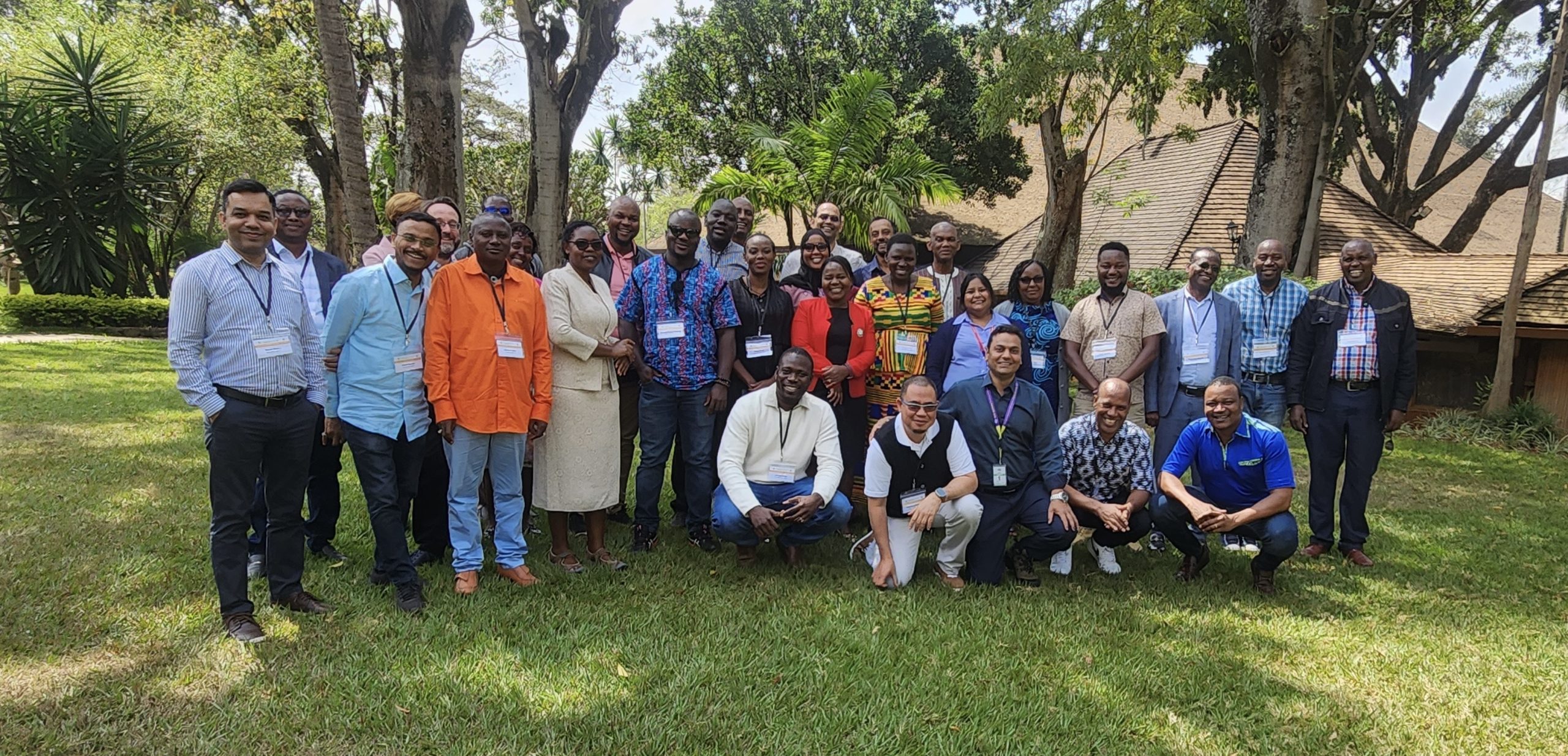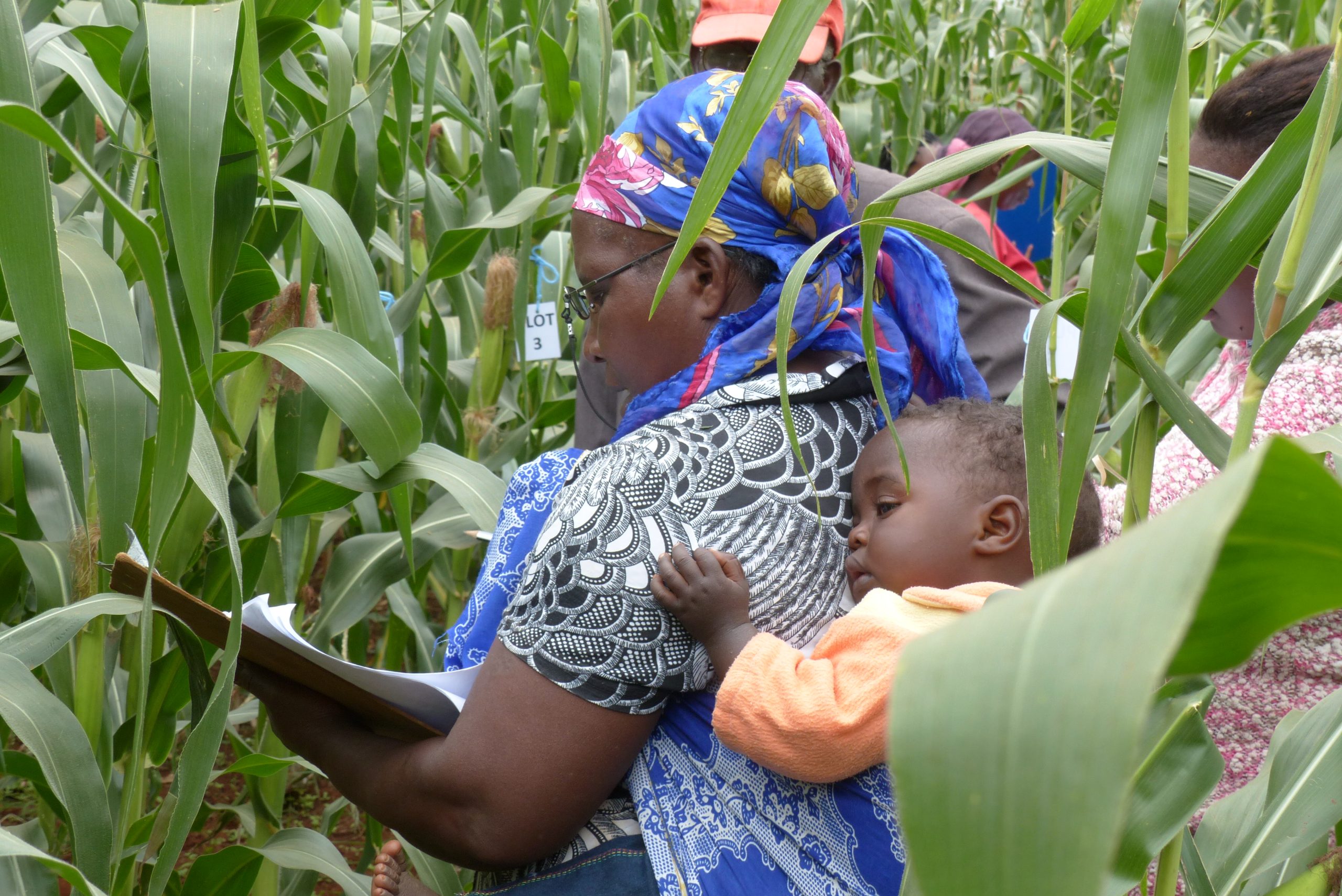In the heart of Ndeini village in Machakos County—a region in Kenya known for unpredictable weather and difficult farming conditions—farmer Festus Muthoka’s story is a testament to resilience and innovation. Festus transformed his livelihood by making strategic crop choices and adopting new pigeon pea varieties, resulting in higher yields and incomes.
“When I couldn’t find a job in Nairobi, I returned to the countryside and realized that the fields held more potential for me,” said Festus. For seven years, he had been growing maize, beans, and local pigeon pea, but inconsistent rainfall made it difficult to achieve the desired yields. Pigeon pea offered new hope, particularly when Festus discovered the new variety ‘Mituki.’
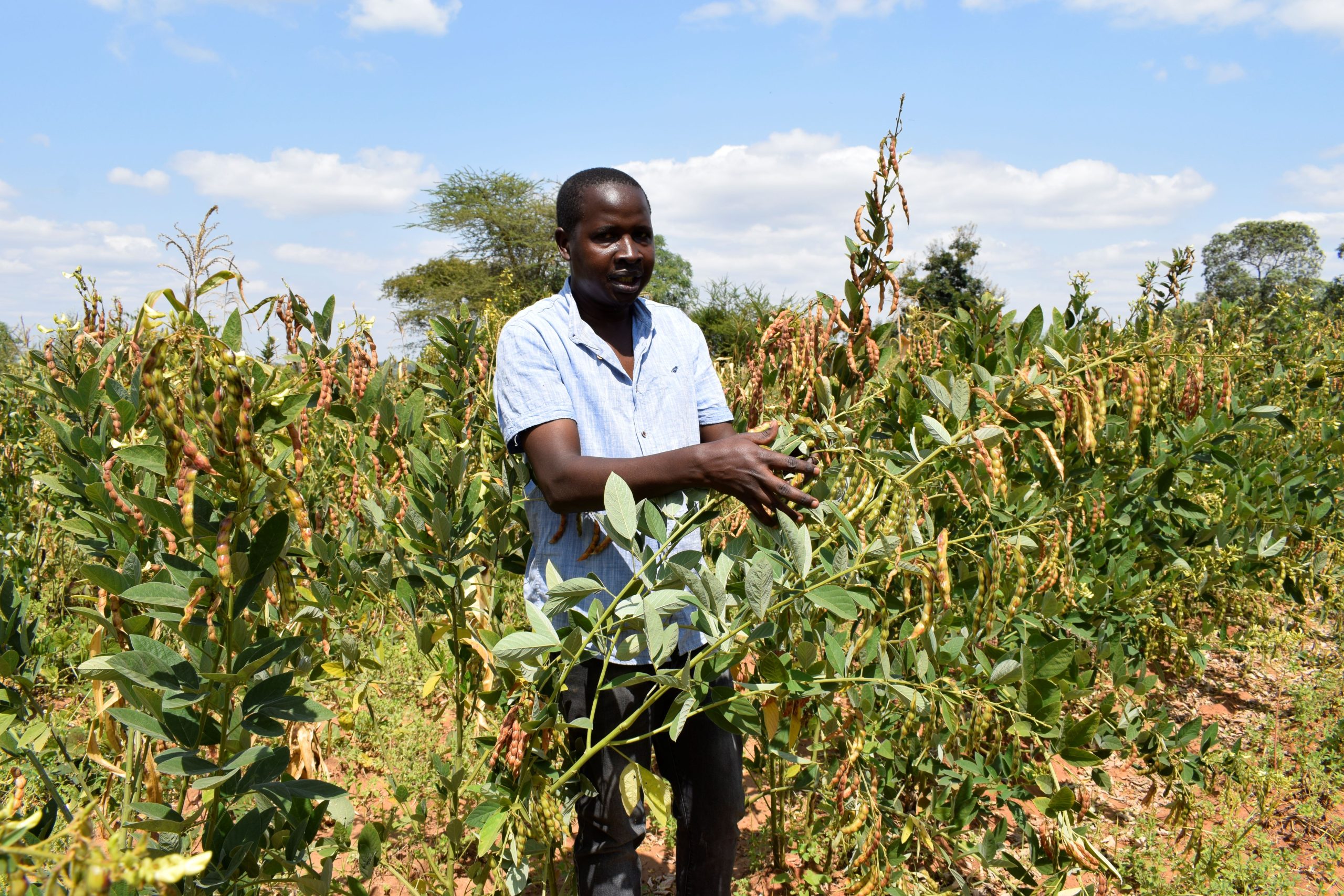
Mituki as a gamechanger
Unlike traditional pigeon pea, which takes up to nine months to mature, the Mituki variety matures in four and a half months and can be harvested two to three times a year. “The first year, I planted three lines of Mituki and saw its potential. It is more profitable to sell pigeon pea when it is green. This variety stays green for a long time, and the demand, especially in local hotels, is very high. I sold it for a good profit,” said Festus.
Now in his third year of cultivating Mituki, Festus has expanded his farm to 4-5 acres with plans to increase it to 10 acres in the next planting season. The financial gains have been substantial. “For my first harvest, I made over US $1,500 by selling green pigeon pea. Even after harvesting, the crop remains lush, allowing ongoing sales,” he said.
Festus’s story shows the importance of pigeon pea as an opportunity crop that meets the needs of farmers in challenging environments as well as in challenging economic times. Rael Karimi, a researcher and breeder at the Kenya Agricultural and Livestock Research Organization (KALRO) in Katumani, played a key role in developing the Mituki variety. “When I first started working on the pigeon pea breeding program, we identified a gap in the local varieties, which took a whole year to mature. The commercial short-duration variety, which matures in three months, had small pods and grain, therefore not acceptable to farmers. Farmers needed early- to medium-maturing varieties with market- and farmer-preferred traits, such as larger grains and pods for ease of shelling for green vegetables. This resulted in the development and release of the Mituki variety in 2018,” she said.
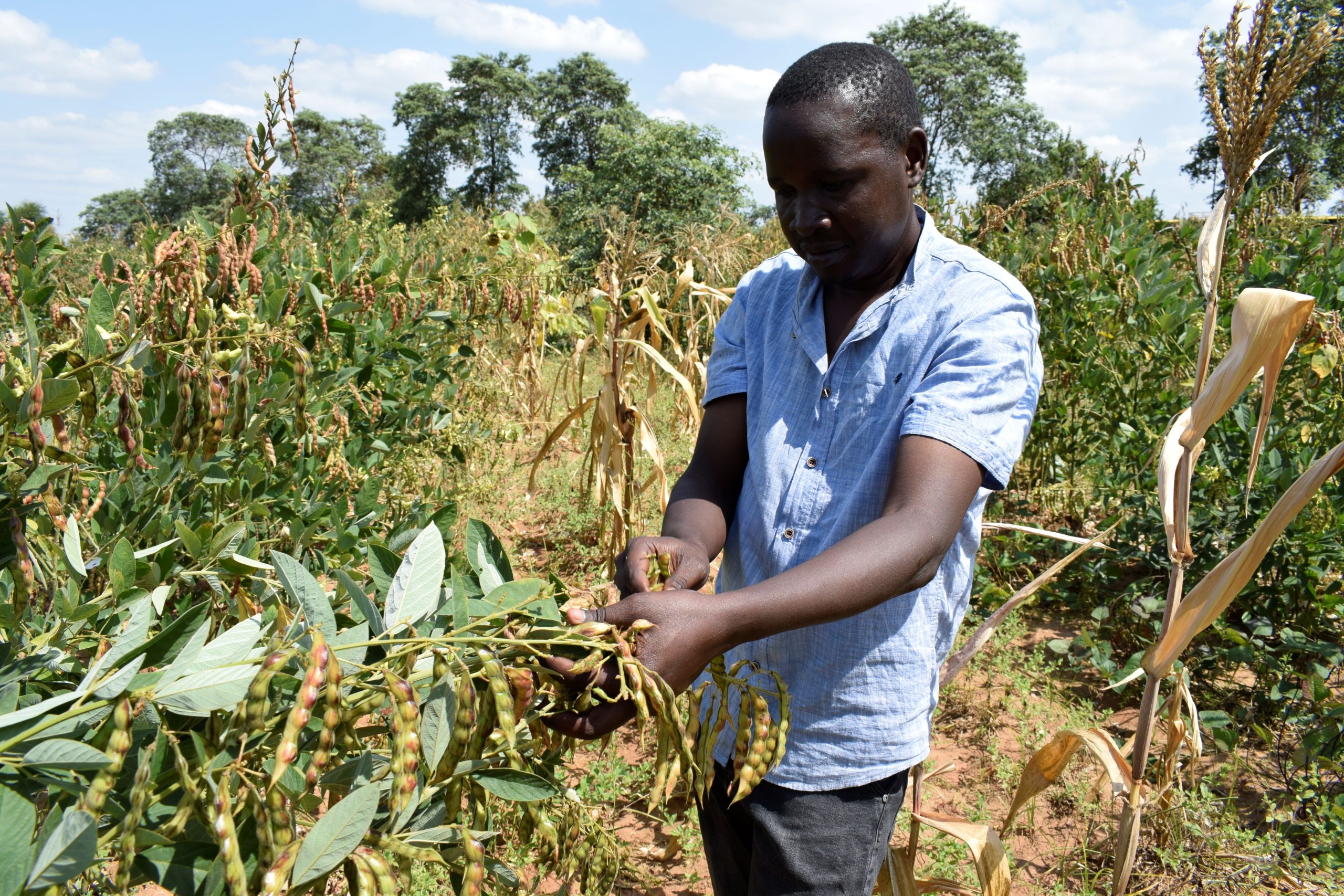
The development and promotion of new pigeon pea varieties involve extensive testing and active farmer participation. “We conducted on-station trials, followed by on-farm testing with farmers to ensure the varieties had the farmer-preferred traits. The Mituki variety is a medium-duration variety, giving two harvests per year, making it very popular among farmers,” Karimi added.
Creating awareness during field days
Promoting new varieties is equally important as developing them. “It’s one thing to release a variety but another to ensure promotion and popularization. If you release it and put it on the shelves, farmers will not be aware that a better variety is available,“ said Rael. This is where on-farm demonstrations and field days are crucial.
Field days are critical in ensuring that new, improved varieties reach the farmers who require them the most, bridging the gap between varietal development and practical application in the field. They also emphasize the importance of using high-quality seeds rather than recycled seeds, which often come with significant challenges.
A field day held in July in Ndeini village effectively raised awareness among numerous farmers about the benefits of the Mituki variety and how it can provide two harvests per year compared to their long-duration local varieties, which only give one harvest in a year.
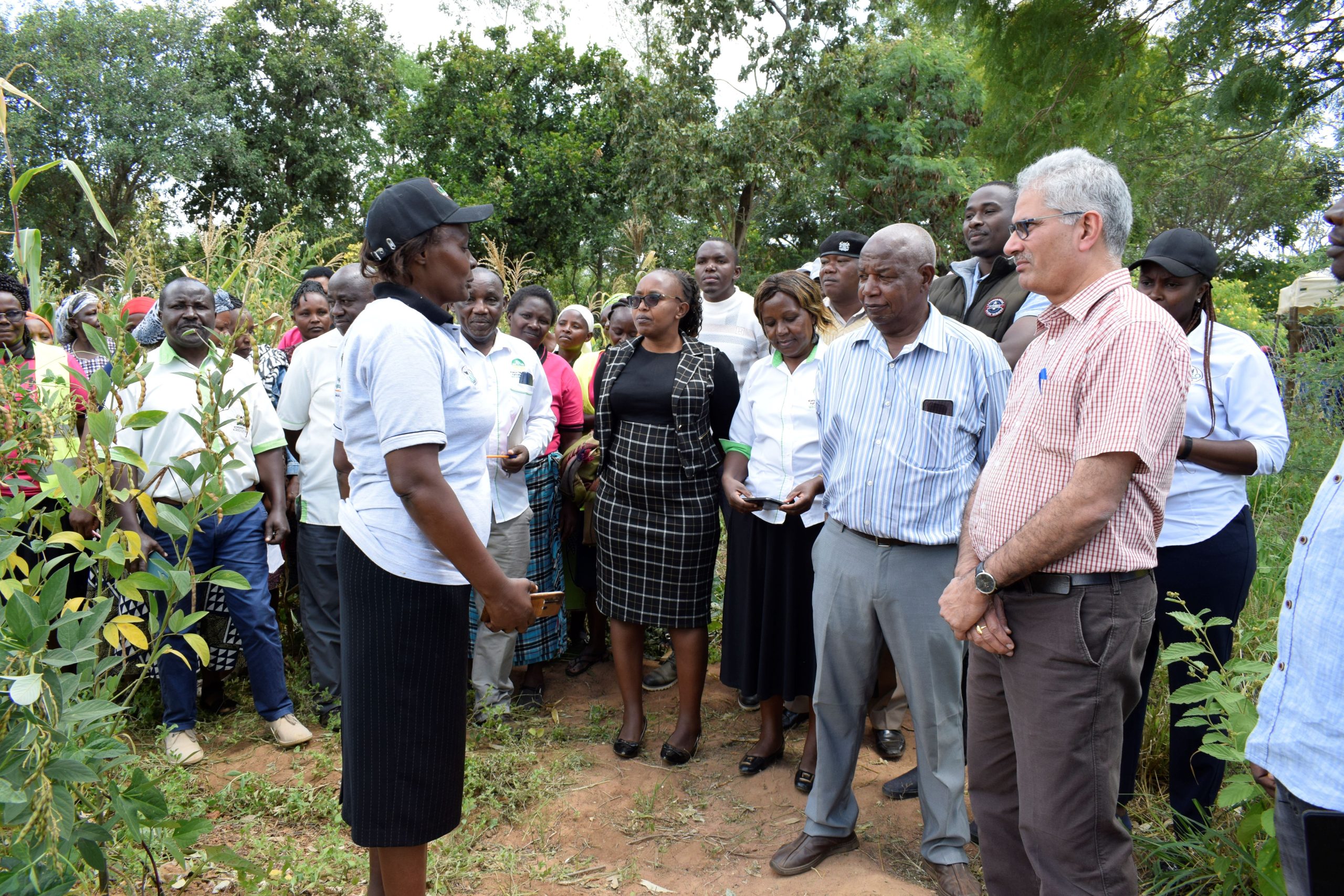
Seed purity for improved yields
Chris Ojiewo, seed systems lead for the Dryland Crops program at CIMMYT, emphasizes the importance of maintaining seed purity and good farming practices. “Farmers often recycle seeds for years, resulting in cross-pollination and loss of desirable traits. We encourage them to regularly buy new seeds, which ensures high yield and disease resistance. With support from CIMMYT and the Accelerated Varietal Improvement and Seed Systems in Africa (AVISA) Project, we are now able to produce and distribute quality seeds to farmers,” he said.
Chris highlighted the challenges of recycling seeds. Genetic impurity is a significant concern due to pigeon pea outcrossing. It prevents such grains from entering the formal value chain and, as a result, reduces farmer profits. Additionally, recycled seeds may accumulate diseases and pests, diminishing crop health. Stored seeds can also have low germination capacity and vigor, leading to poor crop performance.
To address these issues, Chris advocates for behavior change communications to educate farmers on the benefits of using pure seeds. Linking farmers to formal seed value chains ensures that they understand the financial incentives of using pure seeds. Moreover, improving the production, availability, affordability, and timely supply of quality seeds can prevent the need for recycling.
Collaborative efforts in pigeon pea breeding
Ganga Rao, a pigeon pea breeder with the Dryland Crops program, explains how CIMMYT provides support to both farmers and researchers. “CIMMYT has been instrumental in advancing pigeon pea breeding programs by providing technical support and resources. We collaborate closely with local researchers at KALRO to ensure that the new varieties are tailored to the specific needs and conditions of the farmers,” he said.
Through the collaborative efforts of the pigeon pea CGIAR-NARES network, CIMMYT, under the AVISA project, has supported KALRO in producing pigeon pea seed for the Mituki variety. The promotion of this seed used small seed packets of 200g. This approach created demand for the new variety, with many farmers purchasing the seed ahead of the short rains 2024 cropping season. This is an indication that farmers are willing to buy certified seeds when they are made aware of improved varieties that offer both farmer- and market-preferred traits.
Ganga emphasized the importance of continuous improvement and farmer engagement. “Our goal is to develop varieties that are high yielding and resilient to climate stresses and diseases. Through on-farm trials and demonstrations, farmers provide us with valuable feedback, which informs our breeding programs. This collaborative approach ensures that the varieties we release meet the market demands and preferences,” he added.
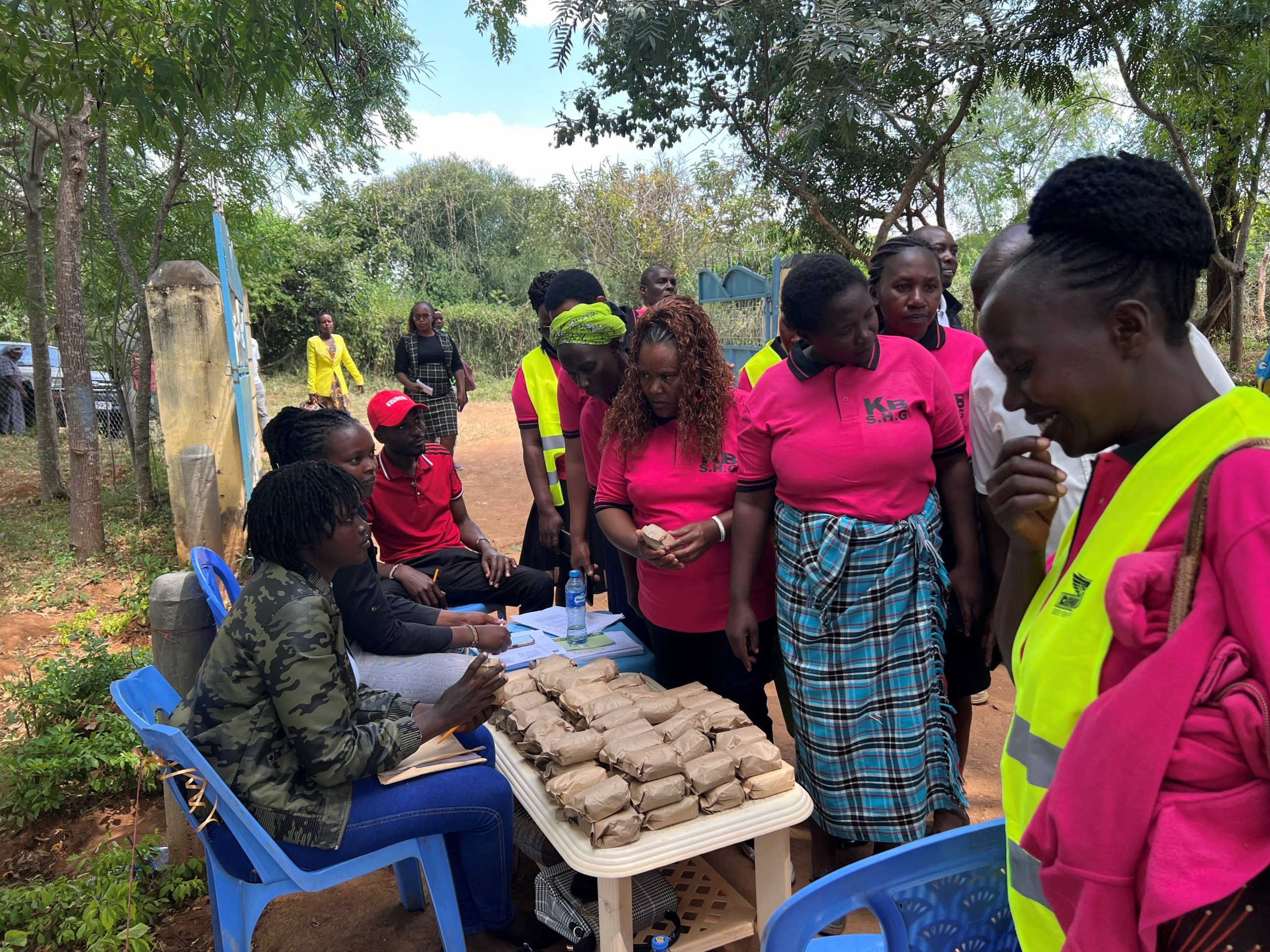
Ganga emphasized the importance of continuous improvement and farmer engagement. “Our goal is to develop varieties that are high yielding and resilient to climate stresses and diseases. Through on-farm trials and demonstrations, farmers provide us with valuable feedback which informs our breeding programs. This collaborative approach ensures that the varieties we release meet the market demands and preferences,” he added.
The future of pigeon pea is bright
Festus’s success with Mituki variety demonstrates the potential of strategic crop selection and good agricultural practices. “I now see pigeon pea as a major agro-enterprise for food security and as a significant source of income. The market demand for green pigeon pea is high, and with proper seed management farmers can sustain and improve their livelihoods,” Festus concluded.
Looking ahead, Karimi is optimistic that more farmers will adopt this new variety. “The future for pigeon pea is bright. We aim to have farmers producing throughout the year, meeting the high market demands and ensuring food security. By aggregating their produce, this will ensure adequate tradable volume which helps farmers negotiate for better prices and achieve greater financial stability,” she said.
Ganga added, “CIMMYT’s ongoing support in seed production and farmer training is crucial. We are committed to empowering farmers with the knowledge and resources they need to maximize their yields and improve their livelihoods. Pigeon pea has the potential to transform the agricultural landscape in dryland regions.”
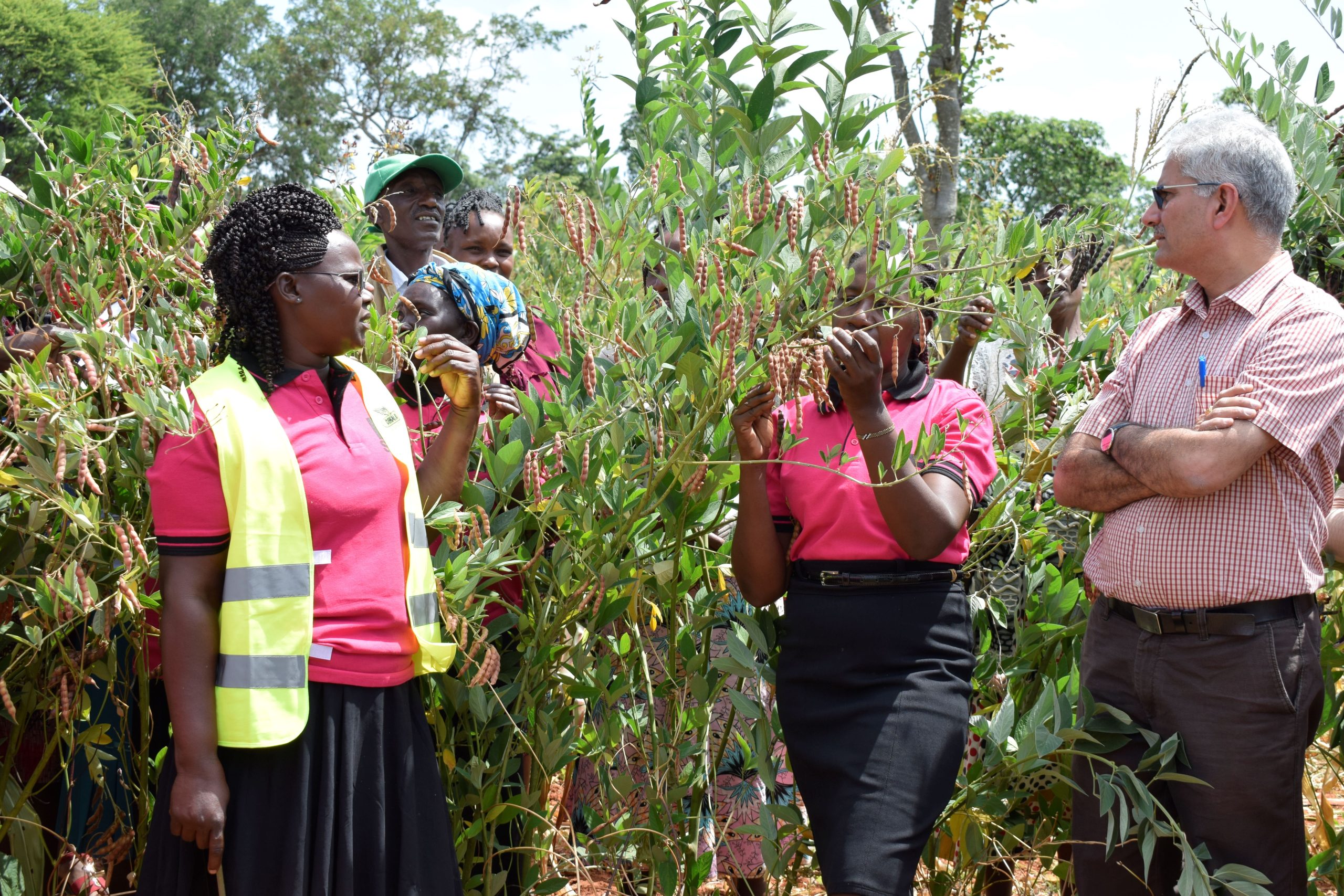
As Festus prepares to expand his farm and continue his journey, his story serves as an inspiration to many farmers in Ndeini and beyond. With support and innovations in crop breeding, farmers such as Festus are not only surviving but thriving, turning challenges into opportunities and paving the way for a prosperous future in agriculture.
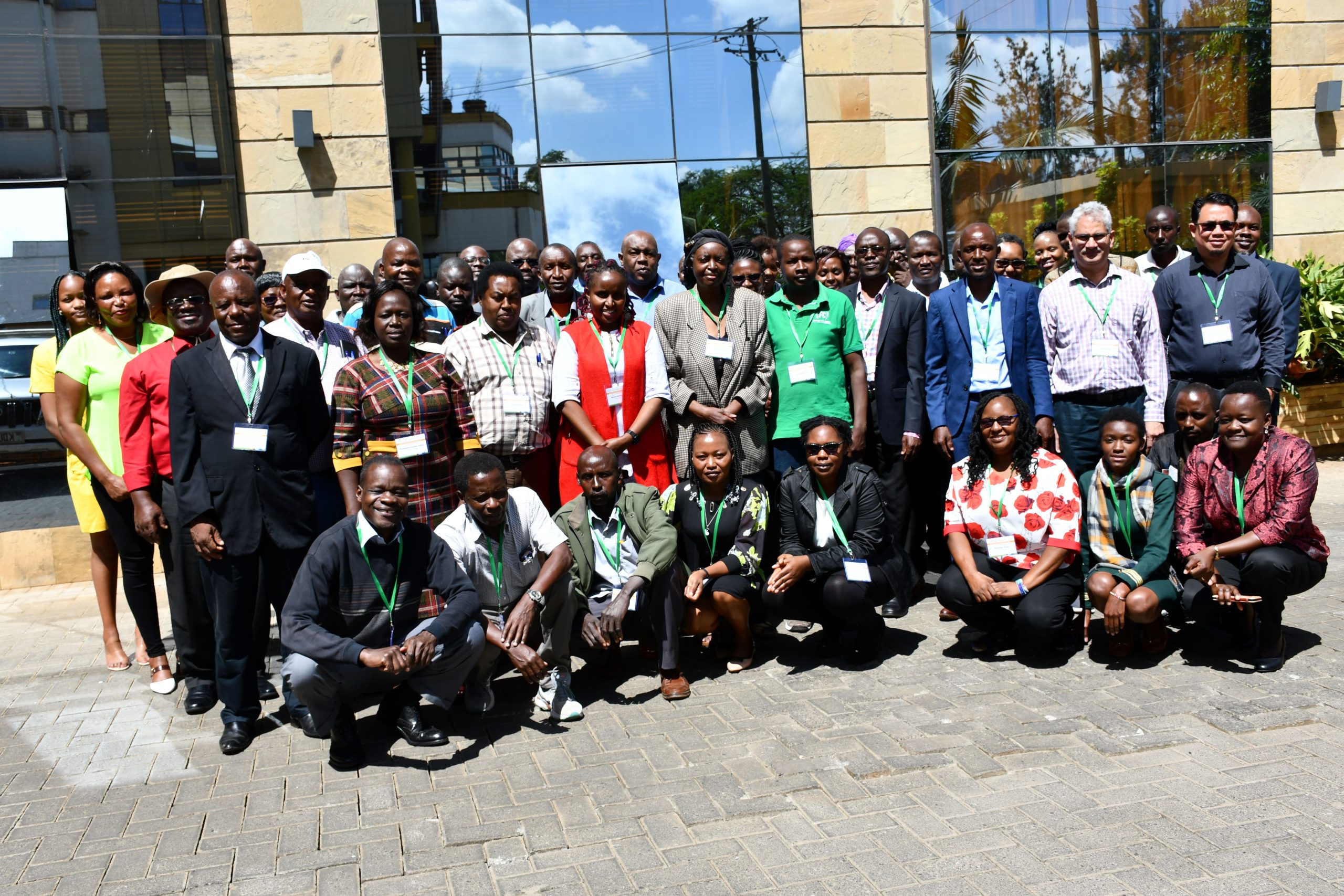
 Climate adaptation and mitigation
Climate adaptation and mitigation 